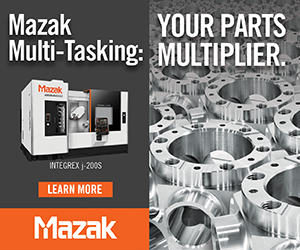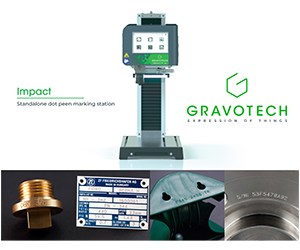Fiber Laser Quickly Marks Heavy-Wear Products
The Foba Y.1000 100-W fiber laser marks difficult substrates as much as 40 percent faster than 50-W lasers, according to the company.
The Foba Y.1000 100-W fiber laser from Alltec marks difficult substrates as much as 40 percent faster than 50-W lasers, according to the company. It applies robust marks on heavy-wear products to ensure abrasion-proof legibility. To meet different speed and contrast specifications for customized applications, four focal widths are available, enabling adjustments to marking field dimensions as well as marking speeds.
Marking field dimensions as large as 498 × 367 mm are possible for marking on moving products in continuous processing lines, increasing efficiency and throughput. The large marking field also speeds marking on large components or multiple marking on one product. Variable scan head tuning is available in two modes, for high-quality or high-speed purposes. It enables sharp marking results at line speeds as fast as 600 m/min.
The laser beam can be positioned in two angles, either 90 degrees top down or zero degrees straight forward, for simple integration. The system is compatible with Ethernet, RS-323, Profibus, Profinet and TCP/IP (with software version MarkUS 2.12) for easy integration into production lines.
The air-cooled system requires less laser source maintenance than water-cooled systems, according to the company. The laser source’s lifespan is also said to be longer than Nd:YAG lasers with lamps or diodes, reducing downtime due to laser source exchange.
Related Content
-
How to Start a Swiss Machining Department From Scratch
When Shamrock Precision needed to cut production time of its bread-and-butter parts in half, it turned to a new type of machine tool and a new CAM system. Here’s how the company succeeded, despite the newness of it all.
-
10 Things to Know About Creep-Feed Grinding
Because of the high material removal rate creep-feed grinding can deliver in challenging materials, grinding might not be just the last step in the process—it might be the process.
-
Understanding Swiss-Type Machining
Once seen as a specialty machine tool, the CNC Swiss-type is increasingly being used in shops that are full of more conventional CNC machines. For the newcomer to Swiss-type machining, here is what the learning curve is like.













